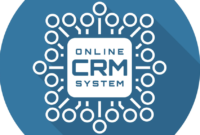CRM Customer Care: Enhancing Relationships Through Technology
Introduction
In the competitive world of modern business, customer care is no longer just about resolving issues—it’s about building lasting relationships and delivering exceptional experiences. Customer Relationship Management (CRM) systems play a pivotal role in transforming customer care by streamlining processes, providing personalized interactions, and enabling proactive service.
This article explores how CRM enhances customer care, its key features, and best practices for leveraging this powerful technology to achieve superior customer satisfaction and loyalty.
What is CRM Customer Care?
CRM customer care refers to the use of a CRM system to manage and optimize interactions with customers throughout their lifecycle. It involves tracking customer inquiries, automating support workflows, and using data-driven insights to deliver timely and personalized assistance.
CRM systems serve as a central repository for all customer-related information, ensuring that businesses can respond to their needs effectively and efficiently.
Benefits of Using CRM for Customer Care
1. Centralized Customer Data
CRM consolidates all customer interactions, preferences, and history in one place, giving support teams a comprehensive view of each customer.
2. Improved Response Times
With automated case assignment and prioritization, CRM systems ensure that customer inquiries are addressed promptly.
3. Personalized Support
Access to detailed customer data allows agents to provide tailored solutions, enhancing the overall experience.
4. Proactive Problem Resolution
CRM tools enable businesses to identify potential issues and address them before they escalate, improving customer satisfaction.
5. Enhanced Team Collaboration
CRM systems facilitate seamless communication and task sharing among support team members, ensuring consistent service delivery.
6. Analytics and Insights
By tracking support metrics, such as resolution times and customer satisfaction scores, CRM systems help businesses identify areas for improvement.
Key Features of CRM Customer Care
1. Case Management
Organize, track, and resolve customer issues efficiently by creating cases for every inquiry or complaint.
2. Automated Workflows
Streamline repetitive tasks, such as ticket assignment and follow-up emails, to improve efficiency.
3. Self-Service Portals
Allow customers to find answers independently through FAQs, knowledge bases, or community forums integrated into the CRM.
4. Omnichannel Support
Manage customer interactions across multiple channels, including email, chat, social media, and phone, in one unified platform.
5. Feedback Management
Gather and analyze customer feedback to continuously refine products and services.
6. AI-Powered Tools
Use artificial intelligence for predictive analytics, chatbots, and sentiment analysis to enhance customer support.
Applications of CRM in Customer Care
1. E-commerce and Retail
CRM helps online retailers manage returns, refunds, and customer inquiries while offering personalized product recommendations.
2. Healthcare
Healthcare providers use CRM to manage patient appointments, track medical histories, and send timely reminders for check-ups or medications.
3. Hospitality
Hotels and resorts leverage CRM to track guest preferences, manage bookings, and deliver personalized experiences.
4. Telecommunications
CRM systems enable telecom providers to handle service requests, track issues, and upsell new products based on customer data.
5. Financial Services
Banks and financial institutions use CRM to manage customer accounts, provide tailored investment advice, and resolve service issues promptly.
Best Practices for CRM Customer Care
1. Train Your Team
Ensure that customer care agents are well-trained in using the CRM system to maximize its potential.
2. Implement Omnichannel Strategies
Provide consistent support across all customer touchpoints, ensuring seamless transitions between channels.
3. Leverage Data Analytics
Use CRM insights to identify common pain points and develop strategies to address them effectively.
4. Personalize Interactions
Tailor every interaction to the customer’s unique needs and preferences for a more engaging experience.
5. Monitor Key Metrics
Track metrics like first response time, resolution time, and customer satisfaction scores to measure performance and identify areas for improvement.
6. Encourage Feedback
Use CRM tools to collect customer feedback regularly and use it to refine your products, services, and support processes.
Challenges of CRM Customer Care
1. Data Overload
Managing large volumes of customer data can be overwhelming. Use segmentation and automation to keep data organized and actionable.
2. Integration Issues
Integrating CRM with existing tools and platforms may require technical expertise and careful planning.
3. Adoption Resistance
Teams may resist adopting a new CRM system due to unfamiliarity or perceived complexity. Address this with comprehensive training and change management strategies.
Future Trends in CRM Customer Care
1. AI and Machine Learning
The integration of AI will enable smarter customer care with predictive insights, automated workflows, and enhanced personalization.
2. Voice and Video Support
As communication channels evolve, CRM systems will incorporate voice and video support for real-time problem resolution.
3. Hyper-Personalization
Using advanced analytics, CRM systems will deliver even more tailored customer experiences based on granular insights.
4. Proactive Engagement
CRM tools will help businesses predict customer needs and engage proactively, further enhancing satisfaction and loyalty.
Conclusion
CRM systems have revolutionized customer care by equipping businesses with the tools they need to deliver exceptional service. From managing inquiries to providing personalized solutions, CRM empowers teams to meet and exceed customer expectations.
By adopting best practices and leveraging emerging trends, businesses can use CRM to transform customer care into a competitive advantage. In an era where customer satisfaction is paramount, CRM customer care is not just an option—it’s a necessity for building trust, loyalty, and long-term success.




